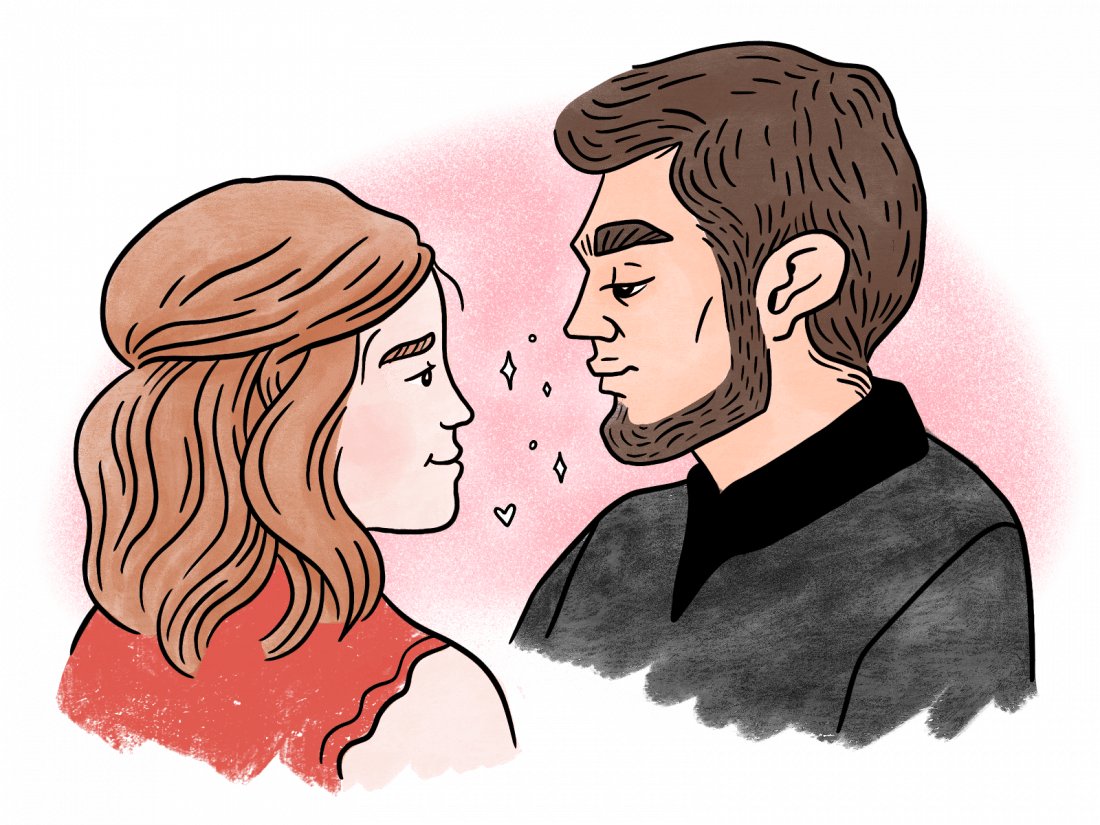
Harry Potter taught me many important lessons. I remember going to each of the movies the day they came out, reading the books and always winning at Harry Potter Scene It? However, the series also seriously twisted my view of healthy relationships for many years.
The Harry Potter series by J.K. Rowling taught me a lot of important things, like how to fight for what is right, and in a lot of ways, the books shaped who I am today. Many people share this experience because Harry Potter really was an unprecedented phenomenon for people my age.
Growing up, it seemed like I was always a little too old or a little too young for some books and films, so I ended up discovering things later in life. But the Harry Potter series was the one thing that I did grow up with. The fourth book, Harry Potter and the Goblet of Fire, is my favourite book — and arguably the best one of the series. It came out in 2000, and it is the first book I remember my mother reading to me.
The Goblet of Fire movie came out in 2005 when I was six years old, and for years, I was fascinated with the relationship between Hermione and the older Quidditch star Viktor Krum. When they met, Viktor was 18 and Hermione was only 15. This relationship is brought up several times in later books to create tension in Ron and Hermione’s developing relationship.
However, the problematic age gap of the relationship is never addressed. Instead, it is only used as a plot device to further Ron and Hermione’s relationship. I saw myself in the character of Hermione Granger as I got older. I was also an awkward know-it-all who was always first to raise my hand in class.
So obviously, by the time I was that age, I was waiting for an older boy to look past my awkward exterior and sweep me off my feet. I absolutely wouldn’t have seen a problem with an 18-year-old showing romantic interest in me.
The teen years are very important — a very formative time. A lot of growing up is done in those years, and a three-year age gap at 15 is completely different than a three-year age gap at 25. When you’re growing up, 15 and 18 don’t sound far apart on paper, but realistically, an 18-yearold is an adult, and a 15-yearold is still a child.
While this age gap is technically legal in Canada if both partners are consenting, it is still questionable on ethical grounds. There is still, undoubtedly, an imbalance of power and experience. The older partner is in a position of power, making these relationships inherently predatory.
If you are at that age and someone that much older is displaying romantic interest in you, it is important to ask yourself why they are interested in someone so much younger and more immature than they are. This could point to some major red flags such as emotional immaturity or manipulative tendencies.
I was very lucky: the awkward years hit me hard and no older boy took an interest in me. But if they had, I wouldn’t have questioned it. Not everyone is so lucky. It is so easy for relationships like Hermione and Viktor’s to turn sour. It is easy for the older partner to manipulate or take advantage of the younger partner.
Yet, their relationship is shown in a positive light throughout the story. Viktor Krum is shown to be a kind, caring person in his relationship with Hermione. It is beneficial to show healthy relationships to young readers, but by presenting this relationship in that way, Rowling seriously overlooks the dangerous aspects of age gaps and normalizes predatory relationships.
This romantic pairing was a chance to teach young readers about the dangers of entering into romantic relationships with someone significantly older. Instead, this teaching moment was completely ignored, leaving a generation of kids believing that predatory relationships are normal.
It is irresponsible for authors to normalize and romanticize such relationships. In point of fact, 18-year-olds should not be dating 15-year-olds. If authors wish to address these relationships, they should depict them as what they are — predatory.
Adults dating children should not be romanticized. J.K. Rowling wasted the opportunity to teach countless children about predatory relationships, but she still shaped many children’s ideas about relationships in the process.
—
Amber Adrian-Jackson
Graphic: Jaymie Stachyruk / Graphics Editor
Leave a Reply